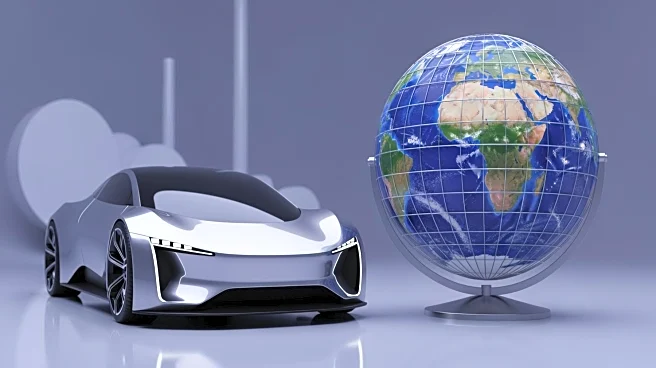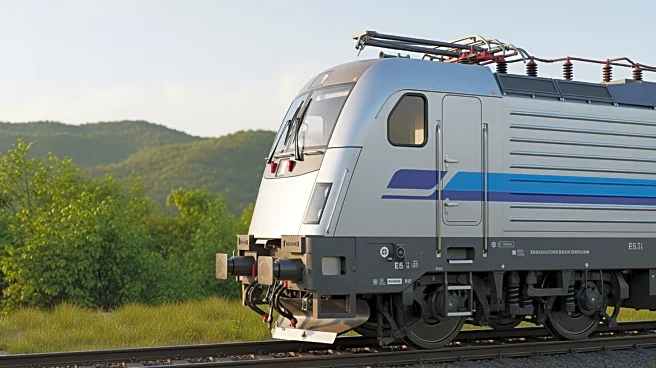What's Happening?
The U.S. automotive industry is grappling with significant challenges due to geopolitical tensions, tariffs, and economic disruptions. Ford Motor CEO Jim Farley described the situation as involving 'a lot of cost and a lot of chaos.' Despite these challenges,
the industry has shown resilience, with Barclays upgrading its outlook for the U.S. auto/mobility sector from 'negative' to 'neutral.' S&P Global has revised its U.S. light vehicle sales estimates upward, indicating a better-than-expected performance in sales and production. However, the industry continues to face headwinds such as slowing disposable income growth and consumer pessimism. The recent government shutdown adds further uncertainty to the economic outlook.
Why It's Important?
The developments in the U.S. auto industry have significant implications for the economy and various stakeholders. Automakers like General Motors, Ford, and Tesla are expected to report declines in earnings, yet remain profitable. The industry is navigating a complex landscape of tariffs, deregulation, and shifts towards electric vehicles. The resilience of the auto industry is crucial for maintaining economic stability, as it is a major contributor to employment and GDP. The challenges faced by the industry also highlight broader economic issues, such as the impact of tariffs and trade policies on manufacturing and consumer spending.
What's Next?
As the industry continues to adapt, major automakers are set to report their third-quarter results, which will provide further insights into the sector's performance. The ongoing trade tensions and economic policies will likely influence future strategies and investments in the auto industry. Additionally, the shift towards electric vehicles and the impact of tariffs on supply chains will remain key areas of focus. Stakeholders, including policymakers and industry leaders, will need to address these challenges to ensure the long-term sustainability and competitiveness of the U.S. auto industry.
Beyond the Headlines
The auto industry's current situation reflects broader economic trends, such as the K-shaped recovery, where wealthier individuals continue to prosper while lower-income groups face financial difficulties. This disparity is evident in the automotive market, where luxury vehicle sales remain strong, but subprime auto lending faces challenges. The industry's response to these issues will have lasting effects on economic inequality and consumer behavior.















